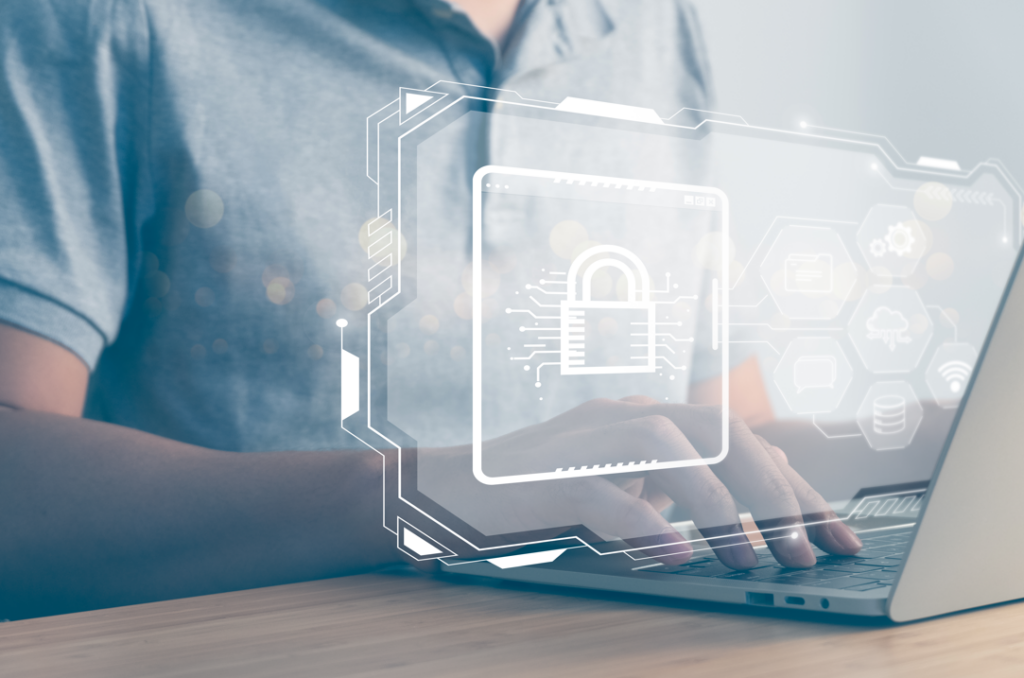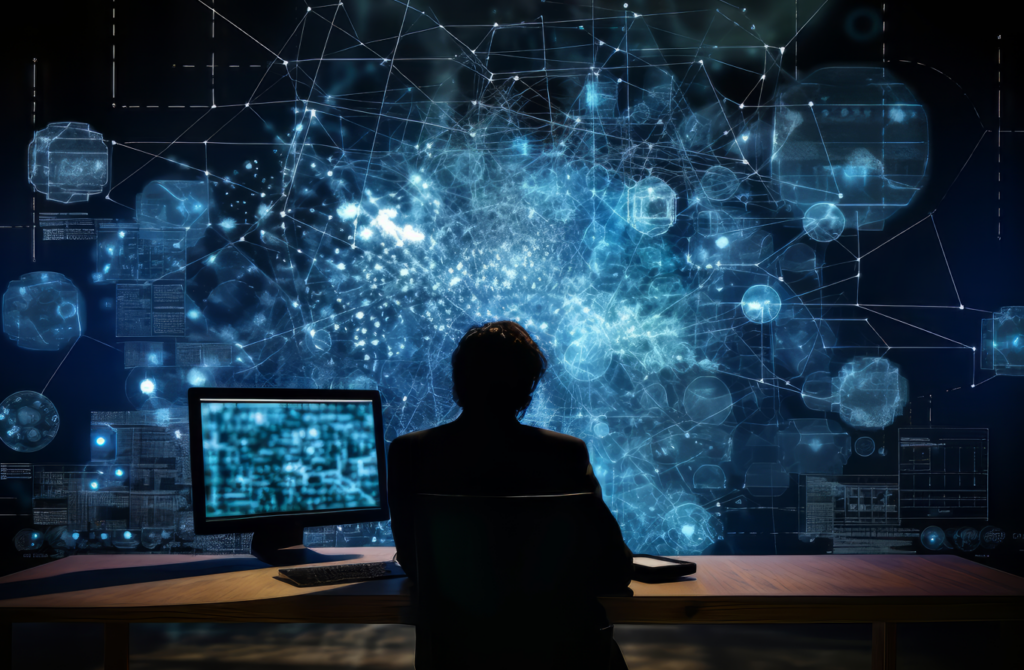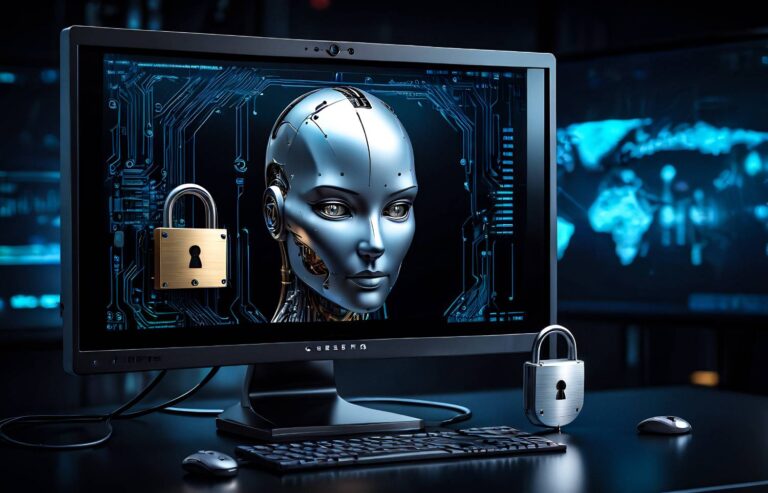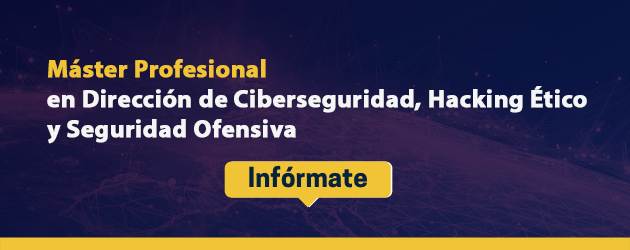Cybersecurity in the era of Artificial Intelligence
Today's world cannot be understood without technology. We live surrounded by technology in practically every aspect of society. It's difficult to abstract ourselves from these technologies. Because, whether we like it or not, whether we are in favor of it or more averse to it, it controls our lives. Even those people who hate technology, who prefer to live a more analog lifestyle, ultimately find their lives pure technology: from the moment they have a clinical analysis performed to any purchase, even in a local establishment or shop. In the end, directly or indirectly, we are surrounded by technology, and it pulls the strings of our lives, whether we like it or not.
In the same way, even for the most tech-shy, cybersecurity and artificial intelligence could be transparently aware of this influence, they are already unbeknownst to them. Again, in a more or less transparent way and with a greater or lesser impact.
It is no coincidence that the European Union and its member states are increasingly developing regulations for both cybersecurity and artificial intelligence (https://digital-strategy.ec.europa.eu/en/policies/cybersecurity-act and https://digital-strategy.ec.europa.eu/en/policies/regulatory-framework-ai, as an example).
And we should be deeply concerned about preventing abuses in the name of technology. We must understand its benefits, as well as its risks. This is where cybersecurity has become an essential ally for citizens and for society as a whole.
In this short article, we'll explore their relationship and how artificial intelligence enhances cybersecurity even further, if possible.
Fundamental pillars
These technological fields, both cybersecurity and artificial intelligence, have become fundamental pillars for the protection of data and information, including systems. The union of both disciplines will revolutionize the way society, individuals, and organizations, both public and private, confront cyber threats, facilitating the development of more robust and adaptive prevention, detection, protection, response, and recovery capabilities.

The Evolution of Cybersecurity
Cybersecurity has evolved enormously since its beginnings. From computer security to broader information security, cybersecurity is embedded in both disciplines. Initially, it was heavily focused on protecting individual systems and local networks. But with the rise of the internet and global interconnection, threats have multiplied and diversified to unprecedented levels. Today, these threats continue to increase in number and danger, leading to an increased likelihood of being attacked and the resulting impact, ultimately leading to increased risk: from phishing and malware attacks to sophisticated ransomware attacks and advanced persistent threats (APTs).

The Role of Artificial Intelligence
Artificial intelligence, with its ability to analyze large volumes of data and learn from it, represents a powerful tool for cybersecurity. Here are some real-life practical examples of its use in improving cybersecurity:
- Threat Detection: AI-based systems can identify anomalous patterns in network traffic and user behavior, enabling real-time threat detection. Machine learning algorithms can analyze historical data to predict and prevent future attacks.
- Authentication and Access Control: AI enhances authentication systems through the use of biometrics and behavioral analysis, ensuring that only authorized users have access to sensitive information.
- Vulnerability Analysis: AI systems continuously scan networks and systems for vulnerabilities, recommending patches and solutions before they are exploited by attackers.
- Automated incident response: reducing reaction time and minimizing the impact of attacks, thereby minimizing risk. For example, it can automatically isolate an infected machine to prevent malware from spreading.

Challenges and Ethical Considerations
Notwithstanding the obvious benefits of applying AI in the field of cybersecurity and, therefore, for the protection of society, its use is not always without challenges. For example, inefficiency and uncertainty, including the risk of false positives, where a legitimate activity could be mistakenly identified as a threat. This could lead to unnecessary disruptions and a loss of trust in security systems. Or, in countries with "indiscriminate" or unethical use of AI, it could lead, for example, to the pretrial detention of innocent citizens.
The risk that AI algorithms could be a target for attackers should also not be underestimated. These machine learning algorithms and the data they feed on could be manipulated and altered through data poisoning attacks, where malicious data is introduced to alter the system's behavior.
Therefore, no matter how much benefit we might derive from the use of AI, ethical considerations must always be taken into account. Implementing AI in cybersecurity must be done in a transparent, traceable, and responsible manner, ensuring or minimizing the risk of violating users' privacy rights. To achieve this, it is essential to define and implement regulatory frameworks and ethical standards that apply to the use of these technologies.

The Future of Cybersecurity with AI
If it's always difficult to talk about the future of cybersecurity, given its ever-changing nature and its constant, rapid evolution, it's even more difficult to talk about AI, where there are practically every month significant developments. However, we do believe the union of the two is very promising. The evolution of AI must necessarily involve smarter and more capable security systems. Mutual collaboration between humans and machines will be key, enabling us to combine human intuition and experience with the processing and analytical capabilities of AI.
We must continue to support both research and development in this field and its evolution. In a controlled manner. We will remain vigilant and, whenever possible, apply techniques such as deep learning and neural networks, in order to continue improving capabilities for greater protection and recovery.
In short, yes to cybersecurity and yes to AI. Yes to its responsible and controlled use, whether consciously or unconsciously.



































